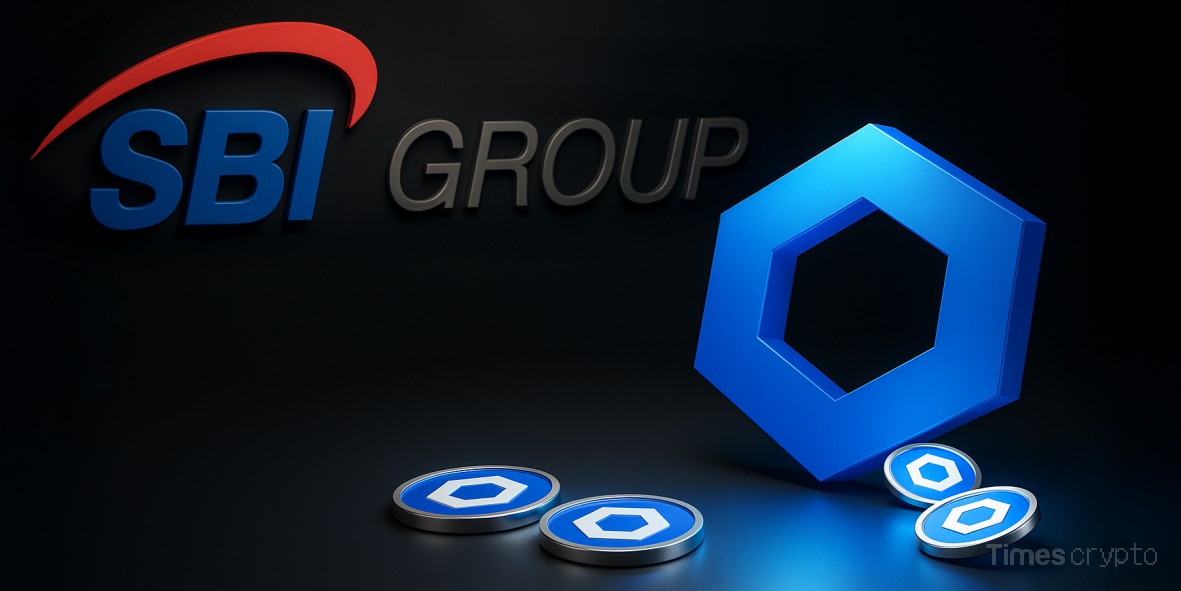Key Takeaways:
- Japanese financial giant, the SBI Group, has so far partnered with Chainlink, Ripple, Circle and Startale to position itself ahead in the digital assets market.
- SBI and Chainlink to develop use cases such as tokenization of Real-World Assets (RWAs), stablecoin reserve verification and on-chain net-asset value (NAV) reporting.
- Japan’s FSA is set to approve its first yen-backed stablecoin, supporting SBI’s wider partnerships with Circle and Ripple to drive stablecoin adoption.
Japanese financial giant SBI Group is again making headlines in the blockchain world. Last week, SBI Group announced a strategic partnership with Startale (a Web3 infrastructure-based company) to build a 24/7 tokenized asset platform and partnered with Circle to expand stablecoin use in Japan. Moreover, Ripple has also partnered with SBI VC Trade Co., Ltd., which is a subsidiary of SBI Group, to expand the reach of Ripple USD (RLUSD) in Japan. Recently, the SBI has made further new developments in the realm of blockchain.
The Japanese financial giant has partnered with Chainlink (LINK), the top blockchain oracle provider, to create blockchain-based tools for financial institutions in Japan and around the Asia-Pacific region.
What Will be the Use-Cases?
The partnership will initially focus on three key areas:
- Tokenized Real-World Assets (RWAs): Enabling institutions to issue and trade tokenized bonds and other financial products.
- Stablecoin Reserve Verification: Using Chainlink’s oracles to offer on-chain attestations of stablecoin reserves, which increases transparency.
- On-chain NAV Reporting: Ensuring fund managers can publish net asset value (NAV) data for tokenized funds directly to blockchain networks.
Leadership Comments
Chainlink co-founder Sergey Nazarov said the partnership was a step toward real-world, production-scale adoption of tokenization:
I am excited to see our great work move towards a state of production usage at a large scale. This collaboration supports stablecoin settlement use cases and advanced fund tokenization.
SBI Holdings chair and CEO Yoshitaka Kitao emphasized that compliance remains central to the initiative:
Together with Chainlink, we aim to power compliant cross-border transactions using stablecoins and accelerate the widespread adoption of digital assets in Japan and APAC.
Regulatory Context
This move by the SBI Group comes at a time of a positive regulatory environment in Japan. Japan’s Financial Services Agency (FSA) is expected to approve its first yen-backed stablecoin as early as next month, led by fintech firm JPYC. This regulatory move aligns with SBI’s current goal of stablecoin adoption and services it aims to offer for the stablecoin market in partnership with Circle, Ripple and Chainlink.
Conclusion
The announcement of SBI and Chainlink’s partnership to develop use cases such as tokenized RWAs, verifiable stablecoin reserves, and on-chain fund reporting at scale signals the convergence of traditional finance with decentralized finance (DeFi). The move made by a financial giant like SBI showcases how financial institutions are strengthening their position in the digital asset ecosystem, which is a sign of a maturing industry.







